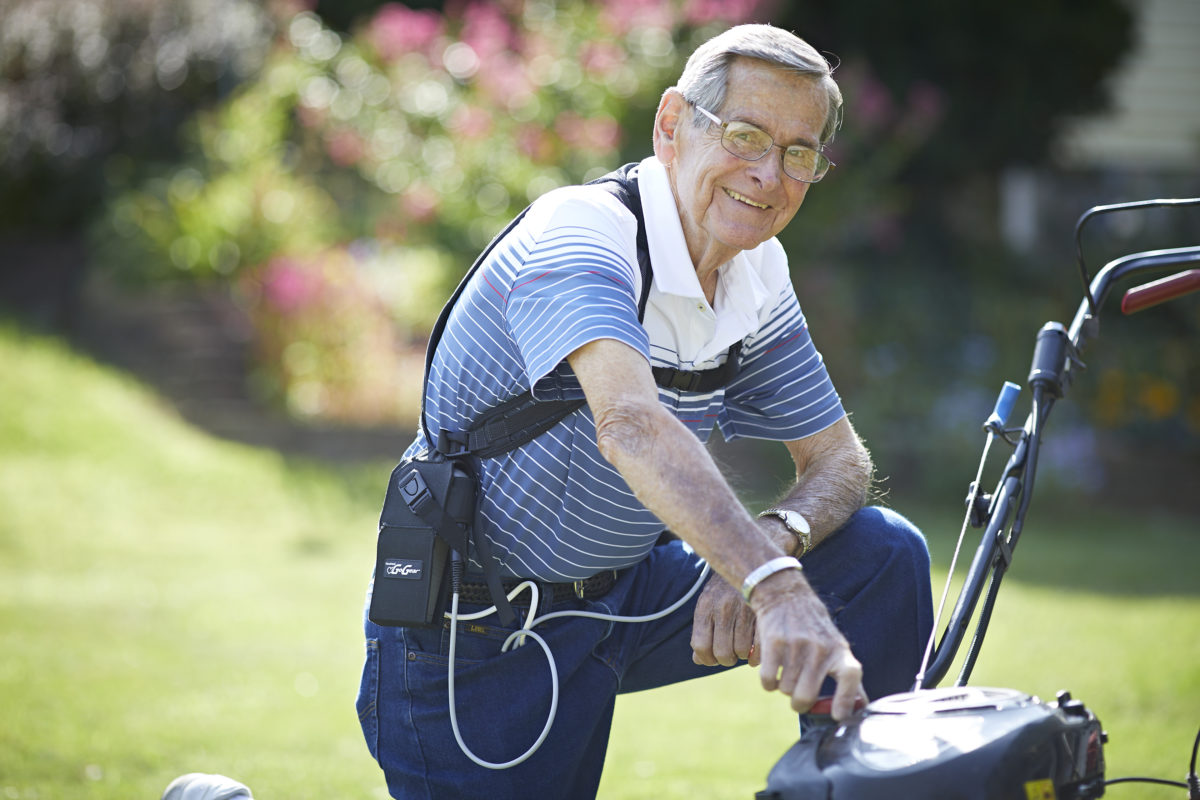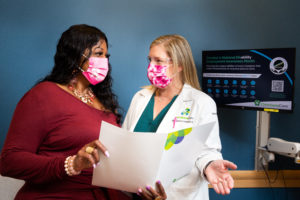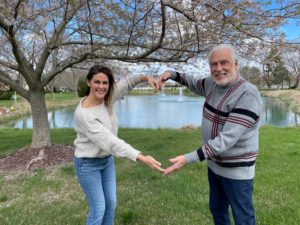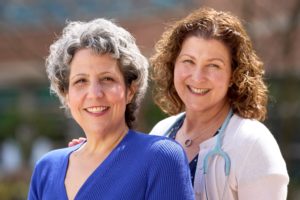Bill Coughlin enjoyed the life of an active retiree, puttering in the garden, tackling renovations on his home in Pike Creek and enjoying long walks with his wife, Janice, during vacations to Assateague Island.
“We would walk on the beach for miles,” he said.
But a history of heart problems cast a shadow on his otherwise sunny existence. He had a heart attack, followed by triple bypass surgery.
For years, doctors treated his heart with medications. He watched his diet and stayed as active as he could.
But the medications became less effective, and Coughlin developed heart failure, a condition in which the heart can’t pump enough blood to keep up with the body’s demands.
“It was only a matter of time,” he said. “I couldn’t walk any distance or do much of anything.”
The team at the Heart Failure Program at Christiana Care’s Center for Heart & Vascular Health helped Coughlin and his family weigh their options. They suggested a left ventricle assist device, or LVAD, a mechanical pump that supports heart function and blood flow in people who have weakened hearts.
“Basically, it replaces the left side of the heart and improves survival of patients, compared to IV medicines,” says Sourin Banerji, M.D., a heart failure specialist at Christiana Care.
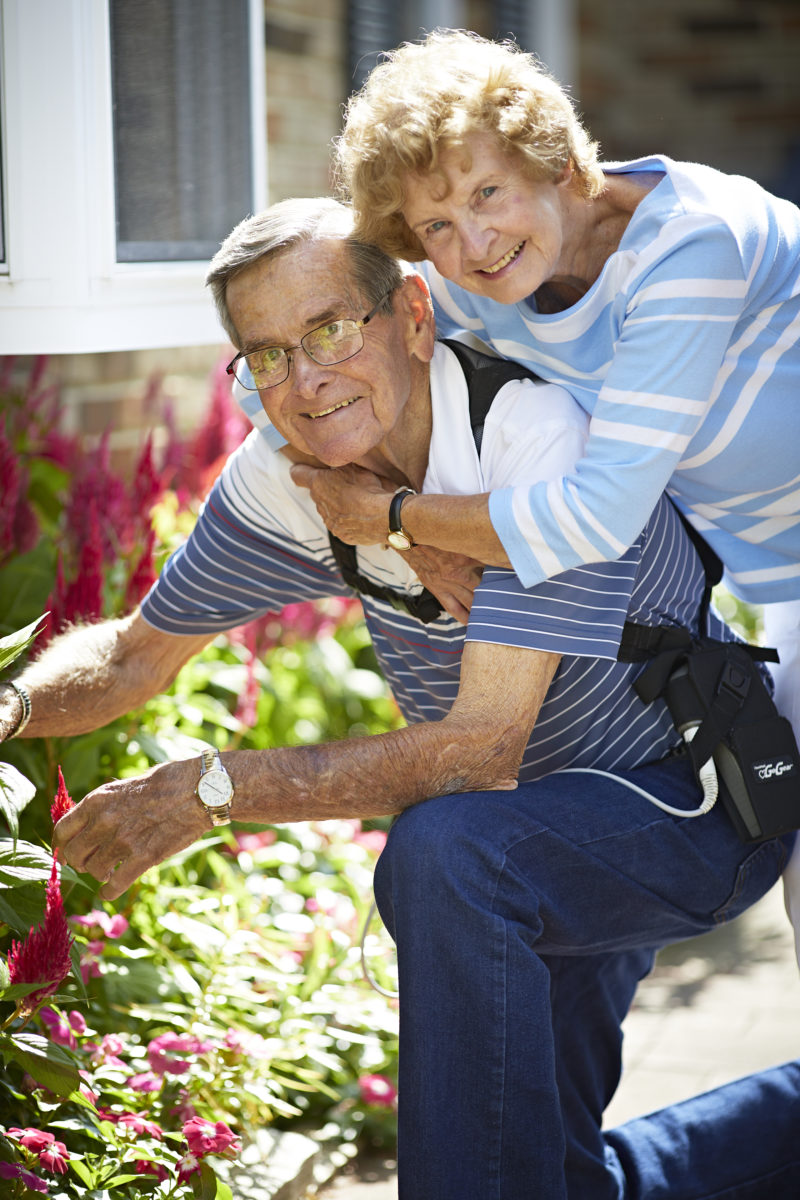
There are three scenarios in which a patient can benefit from an LVAD: as an interim device to another treatment, as a bridge to a heart transplant or as a destination therapy.
For Coughlin, other treatments or a transplant were not options. He was 76, past the cut-off age of 70 for a transplant. Other treatments also were not a good fit.
An LVAD would help his failing heart do its job. Still, adjusting to the device is not easy. There are batteries to change. The patient has to adjust to carrying a bag with the battery pack outside the body.
With Bill’s enthusiastic, can-do attitude, the Heart Failure team was confident he was a good candidate.
“Mentally, he is very sharp,” Dr. Banerji said. “The only thing that was hurting him was his heart.”
Coughlin’s LVAD was implanted in February 2015. His cardiac surgeon was Ray Blackwell, M.D. The Coughlins appreciated that Bill received his extensive pre-surgery and post-surgery care at Christiana Hospital, only five miles from his home.
“If it was Philly or Baltimore, that would have been a big problem, especially for my wife,” Coughlin said.
Dr. Banerji said that heart failure patients are more likely to access the expert care they need when it is convenient for them.
“One of the barriers to care is the ability to commute to an advanced heart center,” he said. “We can provide communication and coordination for our patients. We have a close-knit team that treats patients like family.”
Today, Coughlin is back to doing yard work. He recently remodeled a bathroom in his house. Each month, he goes to the Center for Heart & Vascular Health for a check-up.
“I am doing so much better and enjoying my family,” he said.
Recently, the Coughlins celebrated two milestones. One grandchild graduated from college, and another grandchild graduated from high school.
“Without my LVAD, I wouldn’t be here to enjoy those special days with my grandchildren,” he said.
LVAD program is recertified by The Joint Commission
Christiana Care Health System’s Center for Heart & Vascular Health has again earned The Joint Commission’s Gold Seal of Approval™ for its ventricular assist device destination therapy program by demonstrating compliance with The Joint Commission’s national standards for health care quality and safety in disease-specific care.
Recertification acknowledges the high standards of care maintained by the Congestive Heart Failure and Cardiothoracic Surgical team caring for patients with LVAD implantations.
The program underwent a rigorous on-site review in October 2017. An expert Joint Commission reviewer evaluated the program for compliance with the requirements for The Joint Commission’s Disease-Specific Care Certification as well as ventricular assist device destination therapy-specific standards, clinical practice guidelines and performance measures.
Christiana Care launched its LVAD program in 2011 and is the only hospital in Delaware to offer destination therapy ventricular assist devices for advanced heart failure patients. The program, when first certified in 2013, received The Joint Commission’s Gold Seal of Approval.
“LVADs are complicated and these patients are extremely sick. We’ve had great success with these people because of coordinated medical and surgical management from a collaborative team,” said Ray A. Blackwell, M.D., Chief, Cardiac Surgery and W. Samuel Carpenter, III, Distinguished Chair, Cardiovascular Surgery. “Support for the patients and their families is really important too.”
The Center for Heart and Vascular Health currently is working to expand its Heart Failure and LVAD programs to better serve advanced heart failure patients in Delaware. Christiana Care cardiac surgeons will undergo additional training to bring newer LVAD technology to the state soon.
